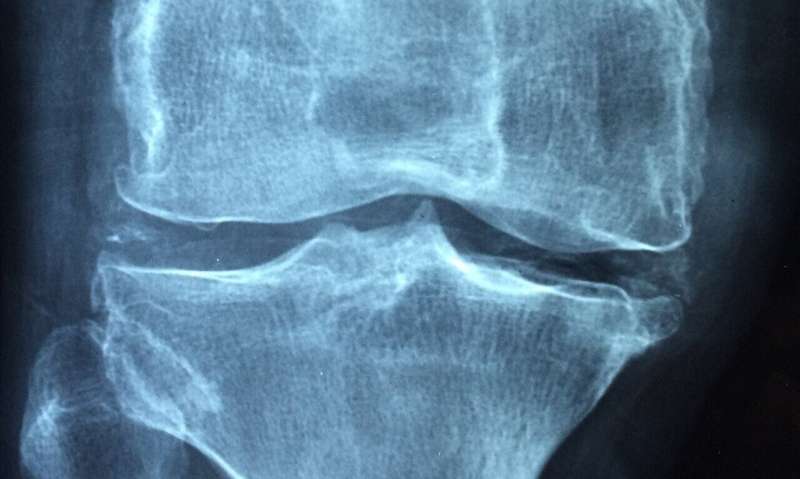
Most common bone and joint (orthopaedic) procedures, such hip replacements and shoulder repair surgery, are not backed up by high quality evidence, mainly because of a lack of definitive trials, suggests an analysis of data published by The BMJ today.
Yet despite the lack of strong supporting evidence, some of these procedures are still recommended by national guidelines in certain situations, the findings show.
Musculoskeletal conditions affect around 1 in 4 UK adults and account for over 25% of all NHS surgical interventions at a cost of £4.76 billion each year.
National clinical guidelines recommend a range of interventions, but there are concerns that many surgical interventions do not have readily available or high quality evidence on their clinical effectiveness to support their use.
To explore this further, a team of UK researchers used data from previous analyses of randomised controlled trials and other studies to compare the clinical effectiveness of the 10 most common orthopaedic procedures with no treatment, placebo, or non-operative care.
They then compared findings for each procedure with national guidelines to check whether recommendations reflected the body of available evidence.
Procedures included knee cartilage (meniscal) repair, shoulder rotator cuff repair, carpal tunnel decompression surgery, and total hip and knee replacements.
The researchers found randomised controlled trial evidence supporting the superiority of carpal tunnel decompression and total knee replacement over non-operative care.
However, no randomised controlled trials specifically compared total hip replacement or meniscal repair with non-operative care. And trial evidence for the other six procedures showed no benefit over non-operative care.
They also found that, although seven of the procedures have been recommended for use by national guidelines, a high quality body of evidence to definitively support these recommendations does not exist for most of them.
This, they say, is mainly due to a lack of randomised controlled trials comparing the procedure with non-operative care.
They stress that this lack of trial evidence does not mean that the interventions are ineffective, but without evidence from randomised controlled trials, determining the true treatment effect is extremely difficult.
This review has some limitations that may have influenced the results, such as including different study designs of varying quality. But the researchers point out that this is a comprehensive analysis of well known databases and guidelines, and the recommendations can be applied to other healthcare settings.
As such, they say an urgent need exists to prioritise research, especially for the procedures with a limited evidence base, and for definitive randomised controlled trial designs to evaluate their clinical effectiveness.
“This will improve patient care, cut healthcare costs, permit more efficient use of our resources, and increase societal trust in orthopaedic interventions,” they write.
Source: Read Full Article
